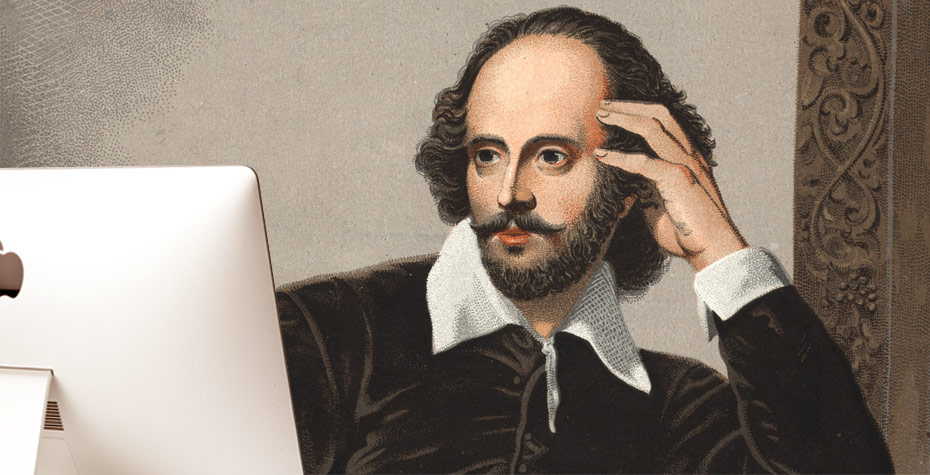Latest Wellesley MOOC Goes Live, Exploring Shakespeare on Page and in Performance

It's time to brush up your Shakespeare! Next week, the newest WellesleyX course begins with Shakespeare: On the Page and in Performance. The course, taught by Professor of English Yu Jin Ko and Senior Lecturer in Theatre Studies Diego Arciniegas, offers an introduction to Shakespeare integrating literary study with theatrical perspective, enabling students to better understand Shakespeare’s continuing greatness.
Wellesley first announced its partnership with edX, the Harvard and MIT online collaborative, in December 2012. Wellesley was the first liberal arts college to join the edX, and also the first women’s college to offer massive open online courses (MOOCs). The first course was Introduction to Human Evolution, followed by Was Alexander Great? And Introduction to Global Sociology began in September.
Now WellesleyX turns to the Bard. Ko and Arciniegas believe the MOOC has uniquely suitable capabilities for discussing his work. “In so many ways, a MOOC is a great vehicle for studying Shakespeare,” reads the syllabus. “Shakespeare worked in a theatre that was popular and accessible to a wide cross-section of society. Studying his plays together as a diverse and ‘massive’ online community thus carries forward the spirit that permeated his theatre.”
In the course, Ko and Arciniegas seek to help students understand both Shakespeare’s popularity and his greatness by starting from a simple premise: that the fullest appreciation of Shakespeare can be achieved only when literary study is combined with analysis of the plays as theatre. They will explore the literary qualities that make Shakespeare’s plays so extraordinary, from the power of the language to the uncanny capacity to illuminate much of human life. Simultaneously, the instructors will involve actors throughout the course to bring Shakespeare’s words to life in performance and analysis. Ko and Arciniegas will teach Romeo and Juliet, A Midsummer Night's Dream, Much Ado About Nothing, Othello, King Lear, and The Winter's Tale.
“We've spatialized the environment somewhat, creating locations such as ‘Backstage’ and ‘Rehearsal Hall,’” says Arciniegas. “Interested students can click through to find further explanations of verse performance, interviews with actors, or even watch a rehearsal or final scene. It reinforces the premise of the course, which is that Shakespeare's genius is best understood in the context of performance.”
Creating this specialized environment for the MOOC took much time and effort from a large campus team. “Building a MOOC isn't simply a matter of loading classroom footage into an online platform,” explains Ko. “Online learning presents a different set of expectations, challenges, and possibilities, which meant that we had to reshape existing material while doing everything from filming new footage to creating new activities and assessments that are more appropriate for the online environment. Every minute of an eleven-week course has to be meticulously planned and constructed with a large team.”
Members of that team included Wellesley students. “It was a bonus to find out what good sports my Wellesley students were during the filming,” adds Arciniegas. “Allowing yourself to be recorded while trying to master new skills is an incredible act of generosity. I'm very grateful and proud of them. Some people worry about MOOCs replacing the residential college experience. I think what surprised me is the degree to which a MOOC can reinforce the value of the residential college experience.”
Register today for ENG112x Shakespeare: On the Page and in Performance.
